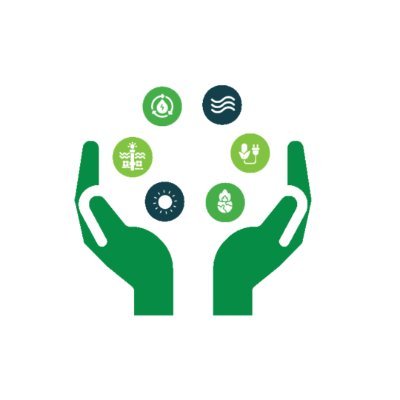
Alliance For Climate Justice & Clean Energy
@ACJCE_Pakistan
Followers
488
Following
503
Media
78
Statuses
545
A civil society network endeavoring for a just transition in Pakistan’s energy sector by diverting policies away from dirty fossil-fuel energy.
Islamabad
Joined February 2021
1/ Thari communities organized a protest on 5th of June to demand restoration of their lands and water supplies, as well as ensuring the rights of communities are protected. Their demands include:
2
23
50
Electric Vehicles are not just about saving costs, but transitioning to an eco friendly and innovative future where the needs of the present and future generations are met. Hear from the attendees at the Inaugural EV Conference about what EVs mean for Pakistan. @cackarachi
0
0
2
Pakistan’s air is choking — with transport causing over 80% of emissions. 🚨 By adopting electric vehicles, we can cut 4.5 million tonnes of CO₂ by 2030 and move towards cleaner, healthier skies. #CleanEnergy #CleanAirForAll #EVFuture
2
2
5
The Alliance for Climate Justice and Clean Energy (ACJCE) has strongly opposed a petition submitted to the Thar Coal and Energy Board (TCEB) seeking a revision of the coal tariff and expansion of mining operations in Thar Coalfield Block-II (TCB-II). https://t.co/ZUTNqMEXO8
e.thenews.com.pk
The image shows workers busy on a coal mining project. — APP/FileKARACHI: The Alliance for Climate Justice and Clean Energy (ACJCE) has strongly opposed a petition submitted to the Thar...
0
0
1
7. #Rejection of appropriation and attempts to speak on behalf of local communities by those in power- including appropriation of local #indigenous political and cultural languages and practices in the name of #environmental #activism.
1
0
0
6. #Rejection of initiatives that speak to ecological restoration of the #River #Indus, using ‘expert-driven’ and abstracted languages of ‘green infrastructure’ while silencing locals, their knowledge, and their historical ways of being and becoming.
1
0
0
5. Discourses around #climatechange must address how hydraulic infrastructural projects compound the impacts of changed climates, making local communities more vulnerable to disasters such as the #flooding experienced in 2022.
1
0
0
4. #Recognition of local and #indigenous farming, pastoral, and fisherfolk communities as stewards of the river-water ecologies based on their historic relationship to the river/s and their deep knowledge of its many lives 💧🌊🌿🐟
1
0
0
@WorldBank @ADB_HQ 3. An end to further interventions such as dams & canals on the rivers that imperil already precarious ecologies & the many lives and forms of life that they sustain. Rejection of attempts to greenwash these interventions under #climatefinance and #mitigation, #adaptation.
1
0
0
2. #Accountability of the International Financial Institutions and the State that are implicated in these projects, namely the Chashma & Kacchi Canals, Taunsa Barrage and Greater Thal Canal. @WorldBank, @ADB_HQ & the Pakistani state stand indicted.
1
0
0
Those in attendance at the sath have passed the following resolution:
0
1
0
In addition, Amina Bibi highlighted the disproportionate impact of river degradation on women while Ismail Sheikh lamented the loss of cultural and spiritual ties to the river.
1
1
0
This is in stark contrast to the perspective of capitalists & developmentalists who reduce it to a resource to be exploited and extracted from This kind of thinking- of how many dams or canals can be built on a river- deprives it of agency and reduces it to a lifeless “thing”.
1
1
0
Fazal-e-Rab Lund & Khadim Hussain, both emphasized the need to view rivers as living entities rather than economic resources "The river is a living being, and much like other living beings, it experiences and feels a multitude of emotions– joy, sadness, anxiety."
1
1
0
On the #InternationalDayofActionforRivers local & indigenous communities held a protest on the bank of the #Indus river to voice concerns at the river’s exploitation. The gathering was organised by Sindhu Bachao Tarla, local fishermen, farmers, and other allies.
1
0
0
Principles of inter-provincial equity must ground consensus building when it comes to provincial actions and targets. The process must be historically informed and attentive to the inequities in climate impacts and resources between the provinces.
0
1
1
Emissions & vulnerability profiles of different federating units in 🇵🇰 are also not uniform or homogenous. Similarly, their socio-ecological dynamics & population density are also distinct, requiring a customised approach towards their role in the materialisation of NDC targets.
1
1
1
to make contributions from indigenous peoples to climate action more visible” Pakistan must make a similar commitment, integrating local climate stewarding practices into climate action projects and centering local control and ownership over adaptation and mitigation processes.
1
1
1
Borrowing from AOSIS, 🇵🇰 should pledge to “collecting, recording & incorporating climate relevant traditional knowledge into planning, decision-making” In Vanuatu’s case the NDCs “commit to bridging the gap between traditional & scientific knowledge...
1
1
1












